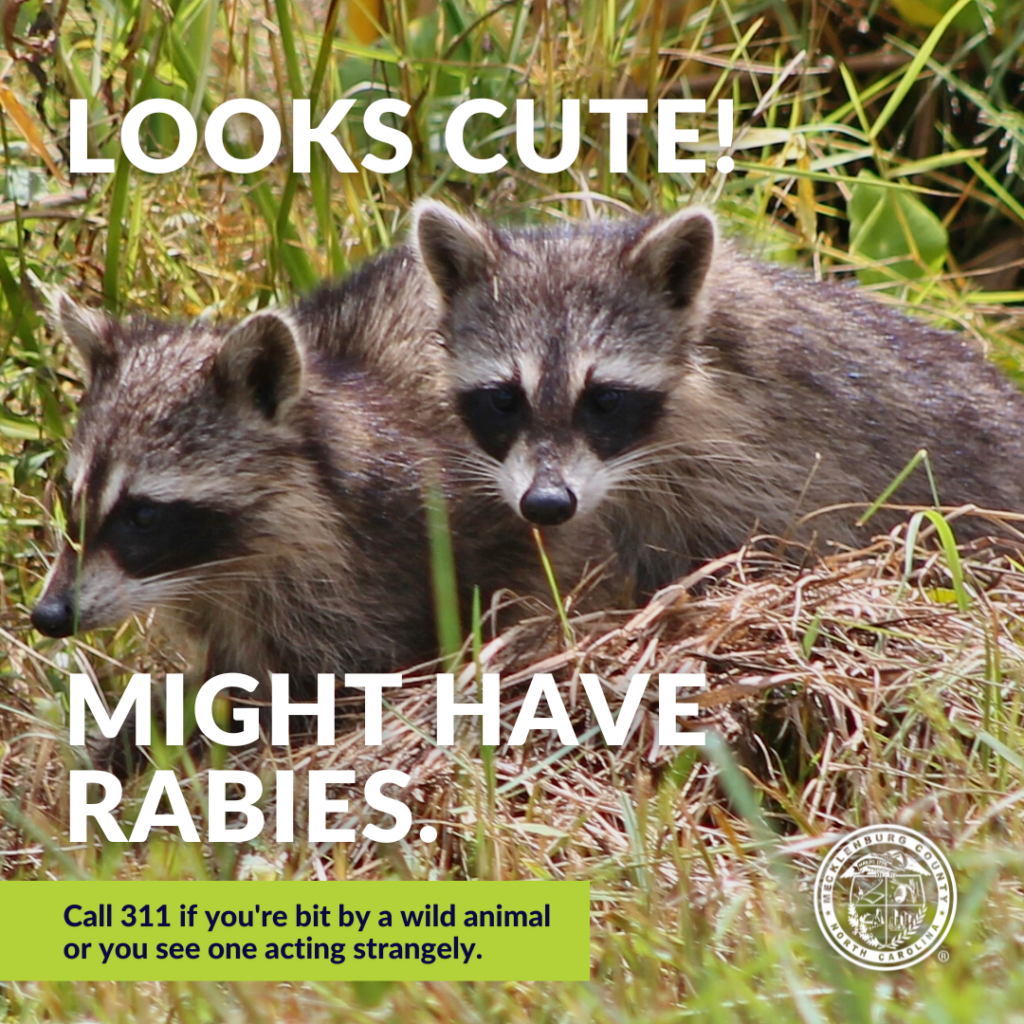Here are some words of wisdom: DON’T TOUCH A RACCOON, FOX, BAT OR ANY OTHER WILD ANIMAL. I don’t care if the bat reminds you of a superhero or if the baby raccoon batted its eyes at you.
Now that we’ve gotten that out of the way, let’s talk rabies. Why? Because somewhere out there, there’s someone who thinks it’s safe to play with these fake friends.
What is rabies?
While it’s tempting to pet these animals, rabies is a deadly viral disease that can only be prevented, not cured. A healthy animal or human can get rabies when bitten, licked, or scratched by a sick animal. The disease most often occurs in wild animals, especially skunks, raccoons, bats, and foxes.
What to do with wild animals?

Repeat after me: never approach, touch, or feed a wild animal, even if you think it’s friendly or needs medical attention. If you see a stray animal, treat it the same.
Talk to your children about the importance of not touching wildlife. Let them know that if they do touch or interact with wildlife to tell an adult. It’s important to stress they will not get in trouble!
How do I protect my pets?
- Make sure your pets are up to date on their rabies vaccinations. (It’s the law.)
- Unvaccinated puppies and kittens should not be left outdoors without supervision.
- Obey leash laws.
- Feed your pets indoors. Don’t toss leftovers or leave pet food outside!
If your pet is attacked, call 311 and the Health Department. Then wear gloves and isolate the pet from other pets and small children.
What if I got bit?

- Immediately wash the area with soap and water and call your doctor.
- If the animal you had an incident with dies, don’t throw it in the trash. Call 311 to have it picked up by Animal Control.
Report stray animals and wild animals that are acting sick or abnormally to Animal Care and Control at 311. If you think you or your pet was bitten by a wild animal, contact Public Health at 704-336-6400.
